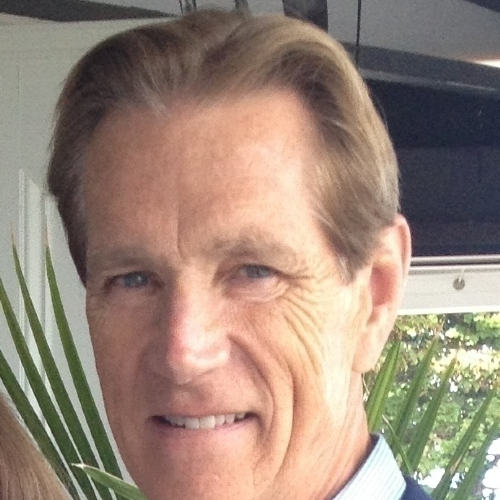Adapting to a World of Constant Social Change
Social change is going to happen all the time. If you constantly think about how terrible this is going to affect you, then you’re going to be stressed. The more you think about it, the more stressed you’re going to be. If you limit these thoughts to a few seconds, then the harmful adrenalin cortisol response is neutralized. If you keep thinking these negative thoughts for days, weeks, or months, the adrenalin response will continue causing increased blood pressure, shutting down the digestive system and the immune system, and causing inflammation resulting in heart disease, strokes, and cancer.
Social change is inevitable and is out of everyone’s control. A healthy way to respond to negative change is to be your true self and limit the anger and stress reaction to less than ten seconds. This allows you to stay out of the anger center and stress center and live your life thinking from the heart with kindness to yourself and others, and thinking from the mind with creativity to solve problems, help others, and innovation to improve people’s lives.
Transcript
Social change is like social norms, which refers to public behavior and rules in a social setting. This varies in the extreme over time and culture to culture.
What do you mean social change to the extreme?
Social change is unpredictable because of new cultural beliefs, political environment, and new science. People need to adapt to these changes, or they’ll be corrected, usually by social retaliation, but sometimes severely. These changes can occur slowly so that people can adapt, or changes happen so fast and in opposite directions that people become confused, angry, and stressed.
Can you give an example?
Social change has been going on for thousands of years. In a conversation about burial practices between two people from different cultures, one of them was outraged after hearing details about the other person’s burial rituals, and that person was outraged after hearing about the other person’s cultural practice because it was opposite.
Do you have other examples?
Twenty-five years ago, smoking in public places was acceptable and now it’s not. Using offensive language was in and now it’s out. Fake news was out and now it’s common. Finally, calling out incompetent politicians is in, but calling out or criticizing your friends, family, and coworkers is out.
How do people cope with these rapid social changes?
Some people cope well, and others do not. There are three responses. Anger is the first. Anger occurs when something has been taken from you such as your beliefs or values. So, this is a natural response, but how long people hold on to the anger is the problem. The healthy response is to use the six to eight second rule, which means feel the anger, feel the anger without thinking about the situation, no thinking, feel the anger let it peak in six to eight seconds, and it will be neutralized by the calming response. Then move on to thinking from your heart with self-compassion and being kind to yourself.
Do you have an example of this?
People become angry because someone mistakenly tries to open their car door in the parking lot, someone turns around in their driveway, or steps onto their lawn. This is inappropriate anger. This occurs because people are not being their true selves, instead they’re self-centered and only thinking about themselves. They don’t take the few seconds to know that no one is going to harm them or take anything from them. They’re thinking from the anger center or stress center, and they need to think from the heart with empathy and kindness. This anger can sometimes cause serious harm to innocent people. Limiting anger to less than ten seconds will prevent these harmful episodes.
What’s the second way people respond?
Instead of anger, some people believe the negative words that someone yells at them. They believe they’re weak or have done terrible things. This leads to feeling unworthy and bad about themselves that can do serious harm. Individuals need to remember these negative generalizations do not personally apply to them. For example, schoolyard or social media bullying.
What’s the third healthy way to respond to negative social change?
By being your true authentic self and limit your negative reaction to less than ten seconds.
What do you mean?
Being your true self means eliminating thinking about yourself or at least only for a few seconds. Thinking about your problems, negative thoughts about yourself, and trying to be someone else are thoughts from the stress center. If you’re thinking from the stress center, then you can’t think from the heart with kindness and giving, and you can’t think from the mind with creativity to solve problems and help others.
What does that have to do with social change?
Social change is going to happen all the time. If you constantly think about how terrible this is going to affect you, then you’re going to be stressed. The more you think about it, the more stressed you’re going to be. If you limit these thoughts to a few seconds, then the harmful adrenalin cortisol response is neutralized. If you keep thinking these negative thoughts for days, weeks, or months, the adrenalin response will continue causing increased blood pressure, shutting down the digestive system and the immune system, and causing inflammation resulting in heart disease, strokes, and cancer.
You need to respond to negative social change by being yourself and limit your negative reaction to a few seconds. Do you have any closing comments?
Social change is inevitable and is out of everyone’s control. A healthy way to respond to negative change is to be your true self and limit the anger and stress reaction to less than ten seconds. This allows you to stay out of the anger center and stress center and live your life thinking from the heart with kindness to yourself and others, and thinking from the mind with creativity to solve problems, help others, and innovation to improve people’s lives.


